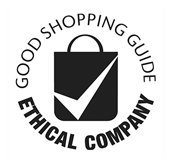The Mooncup and Homelessness
The Mooncup and homelessness
Brighton, where Mooncup is based, is the city with the third highest level of rough-sleepers in the UK. In the Autumn of 2015, 3,569 people were estimated to be sleeping rough on any one night in England alone. That’s without accounting for numbers of the hidden homeless – those currently in unstable or unsustainable housing. We know that there’s no single reason why someone can end up without a home, and that with just a few twists of bad luck, it could all too easily happen to any one of us.
So, is there something we can do to help those experiencing homelessness now? We know that having a period can add yet another struggle to a life of risk, poverty and rough-sleeping. In the UK, some Foodbanks are already adding sanitary products to their lists of items, and organisations like The Homeless Period have been dedicated to raising awareness and offering solutions for some time.
Beyond donating a share of Mooncup funds to selected organisations through Team Giving, and individual team members’ efforts with local organisations, could supplying Mooncups offer a small, though practical, solution to at least one of the obstacles that homelessness presents? These are questions we’re asked by our brilliantly engaged community of users worldwide, and have explored many times over the years.
Over the past 14 years, we’ve been privileged to work with charities and NFP organisations around the world, and have learned a great deal from these collaborations along the way. One key discovery has frustratingly been that, while it often can be the answer, in fact the Mooncup sadly just isn’t always…
When is the Mooncup an appropriate solution?
As an ethical business, it’s paramount to us that we’re sure that the Mooncup is being introduced in an environment where it will be genuinely wanted and helpful.
We’ve found that a good starting point is focus groups involving grassroots discussion with potential users themselves to explore how they currently manage, perceive and experience their periods. It’s vital to review practicalities too such as: whether there is access to clean water, whether there are other risks to personal safety that need addressing as a priority, whether culturally specific rites of passage require an intact hymen, whether there tends to be a preference for internal or external products.
And, maybe most pertinently for those experiencing homelessness, there is also a general sentiment that people in such a state of crisis may require familiar products – it is perhaps with the luxury of choice and a fundamental sense of security that we can experiment happily with new ideas.
So, in response to this reality, one way to help that we recommend is for current Mooncup users to simply donate any wrapped disposable sanitary products they have left after turning to using the Mooncup to their local Foodbank.
Of course, it doesn’t stop there. Would it be worth evaluating whether the Mooncup would be more helpfully introduced as an option at a later stage, once higher risks have been addressed and the individual is in a position to care for themselves and their belongings in safety?
What happens next?
If the Mooncup emerges as an appropriate solution, it’s also important for those using it to have access to good support and advice about usage (it can take a little while to get used to). The Mooncup Advice Service is run by medical health professionals who are available for usage queries and problems. In our experience, we have found it very helpful for a small group of local health/support workers to first trial the Mooncup for a few cycles themselves. Once they have got the knack of it the Mooncup can then be introduced further into the community, with accompanying advice etc.
It feels important to be clear that, as a small, ethical business manufacturing a product that is a one-off purchase linked with a unique, supportive advice service, we can’t rely upon repeat purchase and the multi-billion pound revenue that can generate. So, it’s unfortunately just not economically feasible for us to hand out free Mooncups: projects that we collaborate with involve subsidised, rather than donated Mooncups.
While people can end up homeless for all sorts of reasons, personal circumstances; from relationship breakdown and bereavement to addiction issues and experience of the criminal justice system; can play their part as well as wider factors such as inequality, housing supply and income/welfare policies. We realise that periods are just one of the many challenges that homeless people may face, though as it’s something that we at Mooncup Ltd may be able to help with, we’re committed to playing our part.
If you’d like to discuss any of the issues raised further, don’t hesitate to contact us at campaigns@mooncup.co.uk.
SOURCES
http://www.homeless.org.uk/facts/homelessness-in-numbers/rough-sleeping/rough-sleeping-our-analysis
Read more
Charity and NGO Projects with the Mooncup®
How the Mooncup fits in with my Vegan Lifesyle
Make sure your Mooncup® is the real deal




